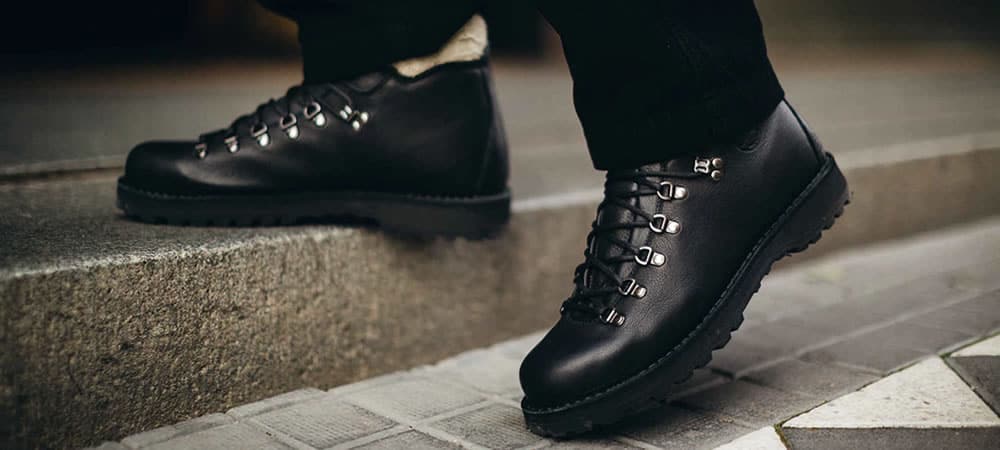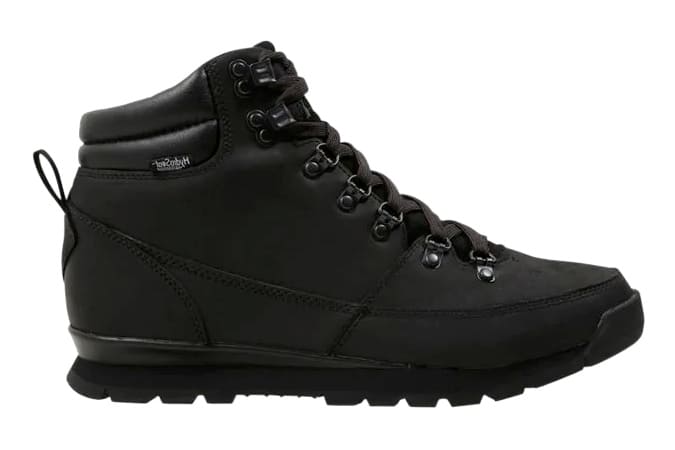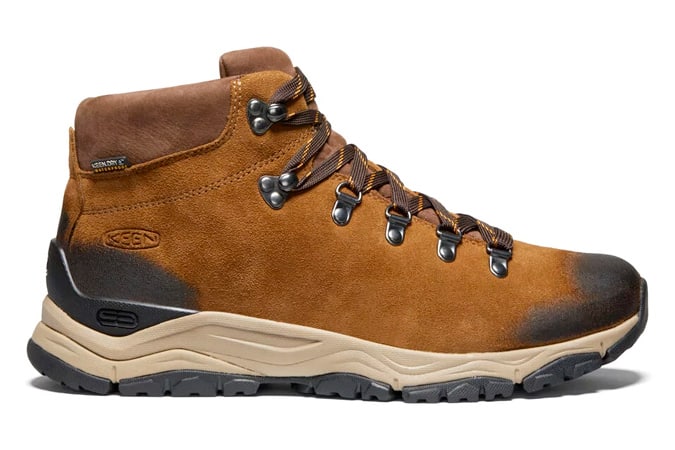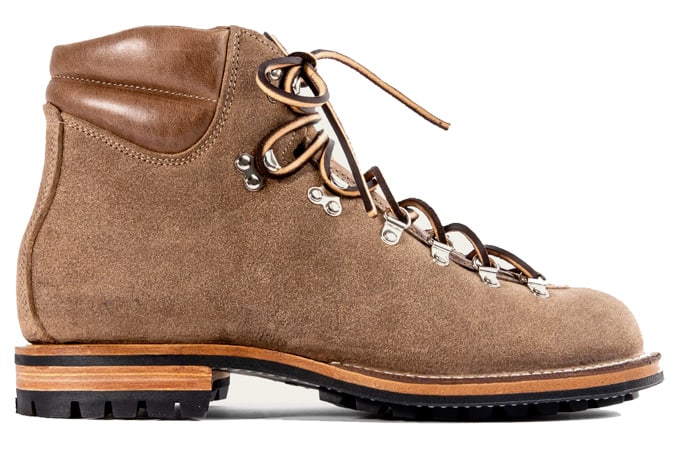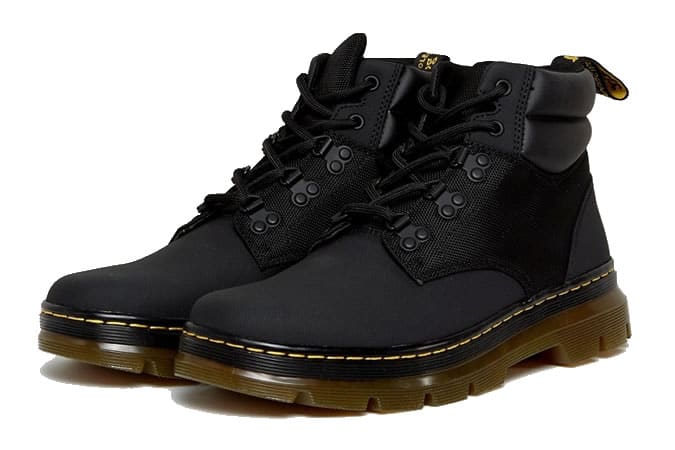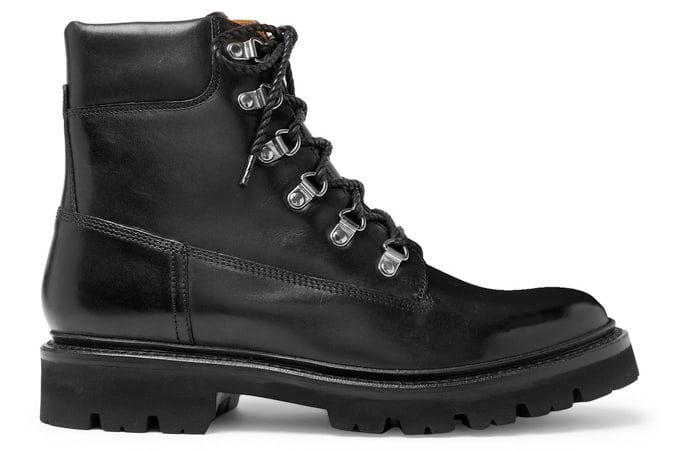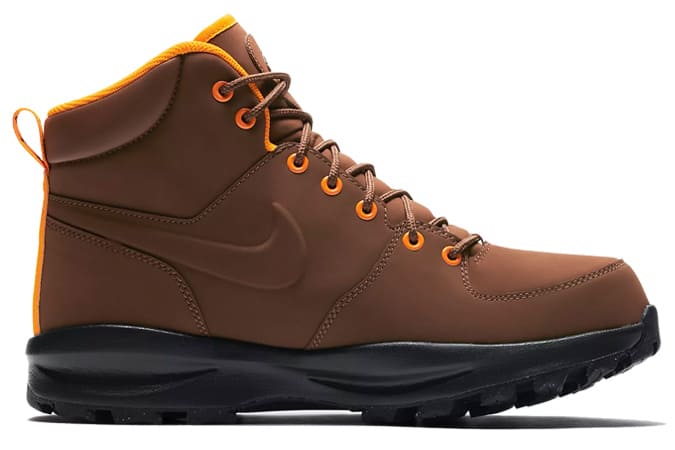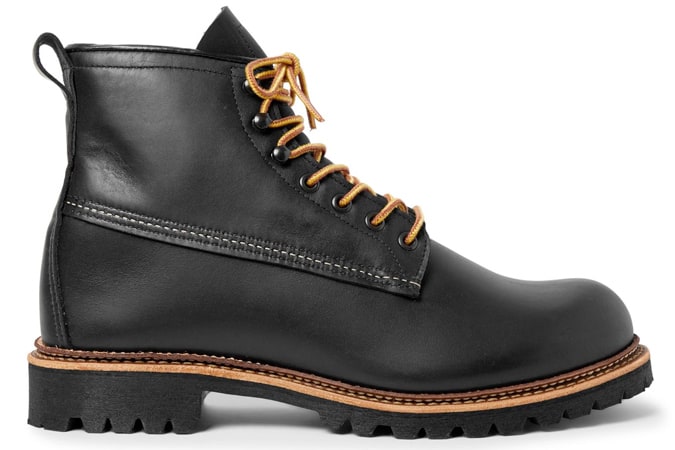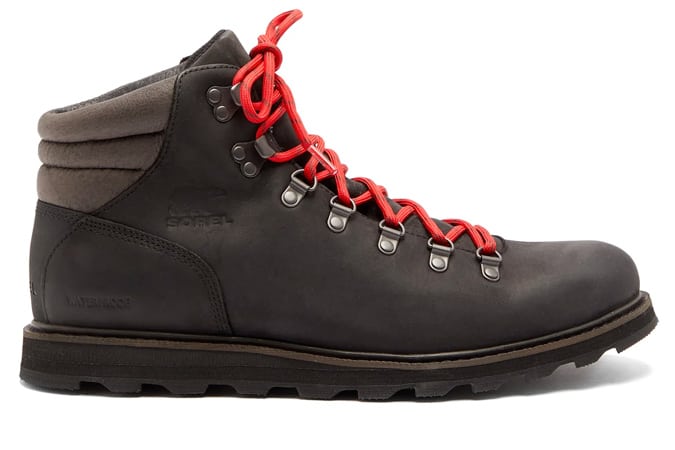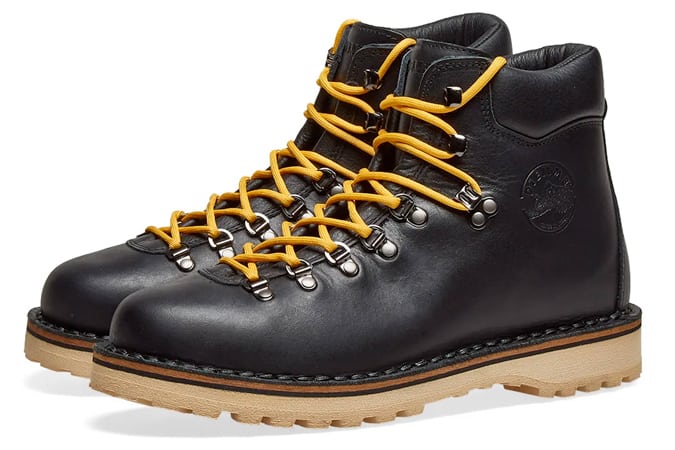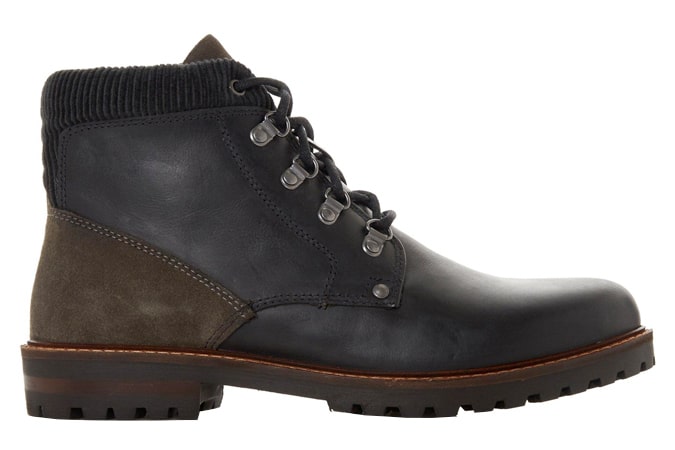Hiking – it’s hardly the most stylish of pastimes. Even a properly handsome bloke like David Gandy isn’t going to look his best covered in sweat and mud, halfway up Scafell Pike, squatting behind a boulder, trying to take a tactical pee while several sheep stare on.
So how, then, did clothing from such a hobby become one of the most unlikely fashion trends? Think about it: cagoules, in; fleece, in; technical backpacks, in; and hiking boots, most definitely, in.
The latter in particular has rambled off the slope and onto the street in a similar way that sneakers sprinted off the sports field and into the wardrobes of the everyman.
Of course, we’re not talking about the sort of clunkers your old geography teacher might have recommended for a field trip. Examples that slot seamlessly into an existing rotation place form slightly ahead of function, but can still hold their own in harsh conditions.
How To Find The Best Hiking Boots
“There are many things that make a good pair of boots,” explains Luigi Partipilo, creative director of Fracap, one of Italy’s premier and most historic family bootmakers. “Having natural materials inside and out is very important. Good quality outsoles and the best Italian leather helps, too.”
That’s not to say that other fabrics are out of the question. There is no shortage of contemporary hiking boot designs to stomp around in this season, rendered in tactile hairy suede and even felt. But that’s perhaps overstepping the line in any clime prone to the vagaries of autumn/winter weather.
When it comes to caring for a pair of leather hiking boots, Partipilo suggests using a neutral cream or a soft conditioner with no colours. “All fine leather should be treated with gentle cleaning combined with leather conditioner,” agrees Tim Cooper, cobbler-in-chief at British footwear label Oliver Sweeney. “Good-quality shoe polish and shoe trees will also ensure the boots last for many years to come. If the boots get wet, let them dry naturally (away from heat) with newspaper stuffed into them to absorb any moisture.”
How To Wear Hiking Boots
Though you may not plan to tackle the great outdoors this season, at times it certainly doesn’t hurt to look as though you might.
The good news is that, despite their name, you don’t actually have to go hiking in these boots (unless you want to; in which case, more power to you). In the right colour, and with the right attitude, they can work just as well on a trek to the office or a march to the pub.
In either case, it’s wise to pay close attention to how you wear your boots and what you wear with them to avoid looking like you plan to attempt Everest.
Tough-as-nails boots work best with equally rugged fabrics, so aside from the obvious pairing of denim, look to weighty materials with a subtle fleck, such as wool, or those with a tactile element, like flannel shirts or cable knit jumpers.
Whether you’re pounding pavements or peaks, here are three ways to ascend to the summit of style at any occasion.
Built For The Great Outdoors
When extreme weather takes hold, channel your inner Edmund Hillary by pulling on every insulating piece of armour in your wardrobe.
A pair of hiking boots with a waterproof lining and traction-packed sole is the perfect way to tie together other cold-weather essentials in a way no sneakers ever could.
Focus on a judicious use of layering, with items like a buffalo check shirt or thick-gauge roll neck underneath a chill-beating outer layer, all footed by boots in a neutral colourway worn with chunky knit socks.
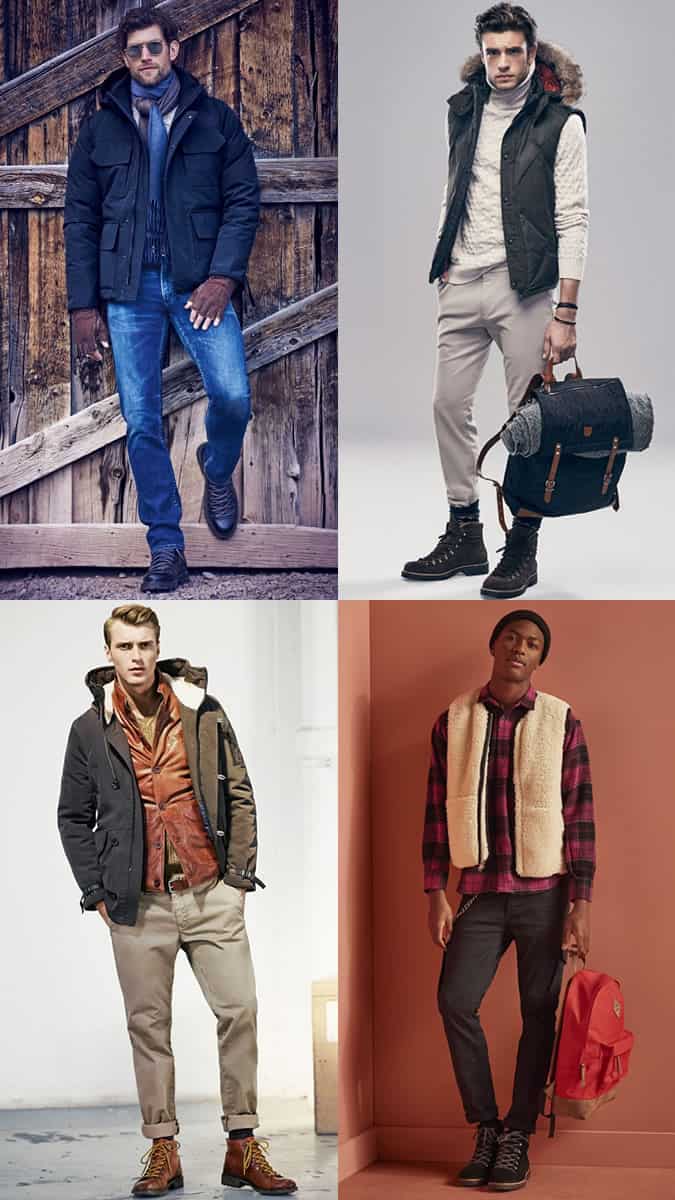
Smart Stompers
A pair of smart hiking boots is an easy way to show yourself as a man ready for anything; even if that ‘thing’ just happens to be a day of client meetings.
In a business-casual office, when proper outdoor footwear feels a bit Boy Scout, stripped-back leather boots are an excellent choice; especially when paired with tactile wool trousers and balanced out by something collared up top.
Though the natural charm of hiking boots is the promise of gaining character as they’re knocked about, when part of a smarter rig it’s wise to keep them in good shape to avoid being sent on an expedition to the unemployment line.

Weekend Walker
Weekends during the slushy season needn’t mean dormant hibernation, nor ruining your best shoes.
Though they are unlikely to be the true adventurer’s trouser of choice, jeans are the natural companion to hard-wearing boots in a casual outfit. Opt for dark indigo or black shades and be wary of the cut – too tight, and the boots will look like corrective clunkers; too loose, and you’ll look like the only thing missing is a hiking stick.
For added ballast, finish this with a choice piece of knitwear. Whether that’s a cable knit cardigan, perhaps over a shirt, or simple crew neck will decide how smart your look skews.

The Best Men’s Hiking Boot Brands
Fracap
When Antonio Cappello handcrafted his first pair of boots back in 1908, unbeknown to him, he was starting a family trade that would still be going strong more than a century later. Every pair of Fracap boots is thoughtfully handmade at the family’s factory in Tuscany using only the finest locally sourced vegetable-tanned leather.
Having kept pace with the modern world, today the firm allows shoppers to completely customise their own pair of boots online, right down to the laces and D-rings. When it comes to luxury hiking boots, why not buy from the best?
The North Face
Purveyor of all things outdoorsy, The North Face is unsurprisingly a leader when it comes to hiking boots that are stylish and sturdy in equal measure.
Since 1968, the Californian brand has turned out classic styles in leather and suede. But what the label does particularly well is synthetic, technical stompers that see performance and style sit side by side. We’re talking cutting-edge fabrics and waterproof linings, all packaged in simple, stripped-back colourways.
Keen
Headquartered in Oregon, a state renowned for its world-class hiking trails, Keen has become an unlikely fashion icon in recent years. It’s little wonder then that in addition to its functional styles, the brand has ventured off course to produce collaborations with the likes of London menswear retailer Garbstore.
Expect performance features like insoles infused with probiotic technology to eat up odour-causing bacteria and chemically treated leather that repels water.
Moncler
Luxury Italian sportswear label Moncler takes its name from the French alpine town Monestier-de-Clermont, so it stands to reason that it excels in making kit for the great outdoors.
Moncler’s hiking boots are some of the best (and best looking) around and will be just as at home on a hillside as they will in an apres-ski bar. Expect premium materials, quality Italian construction and tasteful hits of that iconic tricolour branding.
Clarks
As far as footwear brands go, none are more ingrained into British style than Clarks. The company was founded in 1825 and has since been responsible for introducing iconic silhouettes like the chukka boot.
It’s more of the same legendary status when it comes to poring over the brand’s hiking boots. Pick your mountain stompers up here and you’re buying into a rich heritage and a reputation for reliability and value.
Viberg
As a brand, Viberg sits at the upper end (and beyond) of most people’s budgets, but you only need to cast an eye over its hiking boots to see why.
The Canadian footwear firm only produces one style that it has been perfecting since 1970. The shoe came about when founder Edwin Viberg traded construction patterns with a fellow bootmaker, gaining the supple suede and leather Pachena Bay boot in the process.
Merrell
Merrell may not have a reputation as the most fashion-forward brand out there, but things could all be about to change thanks to the rise of this footwear trend.
With a sturdy build, Vibram soles and modern touches like bright coloured laces, Merrell’s leather hiking boots could give high-end versions a run for their money. Plus, because you’re buying from one of the biggest names in outdoor footwear, you can rest assured that they’ll hold up in the elements.
Dr Martens
Don’t be mistaken, Dr Martens doesn’t just cover the Chelsea boot-clad the trotters of teenage rebels; the brand also makes some equally impressive technical hiking boots.
The best examples fuse the label’s heavy-duty translucent soles with performance detailing realised in incognito colourways. Ideal for the would-be hiking boot wearer who wants to keep a low profile.
Saloman
Given that it was founded in the French Alps, it stands to reason that Saloman creates some of the best outdoor gear on the market, for everything from running to skiing and, of course, hiking. More surprising, though, is that the brand has become a fixture of the fashion pack, with sell-out collaborations with the likes of Palace and Beams.
There’s no skimping on performance either, with Gore-Tex mesh to help feet breathe and sturdy, groove-laden lug patterns on the sole so you can find your grip whatever the terrain.
Columbia
Another Oregon-born outerwear brand, Columbia has built up a fearsome reputation for innovation with over 200 global patents, including a ‘body heat management system’ sewn into the inside of its boots and shoe membranes made from a single sheet of waterproof material.
When it comes to the brand’s hiking boots, the soles are made out of rubber from tyre company Michelin, with enough grip to stop a speeding car, even if you’re just using them to shuffle to the corner shop.
Grenson
One of the oldest Northampton shoemakers still operating today, Grenson was founded in 1866, when William Green started making shoes in a loft above a corn merchants.
Today, Grenson is one of the most respected shoe and boot makers in the UK. While hiking boots aren’t the label’s main output, it does do them very, very well. Think classic silhouettes updated for the modern age with innovative materials and a trademark high-quality build.
Timberland
When they’re not busy churning out iterations of the iconic 6-inch boot, Timberland makes some mean hiking footwear. The brand’s reputation for quality is hardly a secret, but it extends far beyond just its most popular styles.
Timberland offers a mixture of modern and classic hiking boots with several things in common – namely comfort and rugged good looks.
Nike
Anyone who’s ever found themselves trudging through a festival site in Air Force Ones will tell you that Nike knows how to nail a sturdy sole. But unless you want to ruin every sneaker in your rotation, it pays to invest in something fit for purpose.
Housed within the performance-focused ACG range (‘All Conditions Gear’), the brand’s hiking boots are all about hard-wearing footwear loaded up lightweight foam cushioning and sturdy constructions. The fact that they come in the same silhouette as a pair of Jordans is simply a bonus.
Danner
Ever since Charles Danner opened the doors to the Danner Shoe Mfg. company back in 1932, his boots have gained a reputation as some of the best on earth. Worn by the military and hikers alike, these boots are built for purpose first, looks second (though they hardly suffer on the looks front).
More than eight decades on, you can rely on Danner for heritage styling, unparalleled attention to detail and everything to be made on US soil.
Oliver Sweeney
Designer Oliver Sweeney specialises in “classics with a twist”, an approach that has seen the British brand cement itself at the forefront of shoemaking for more than 20 years, with its products always made at the same Italian factory.
Sweeney’s designs keep things traditional, with a dash of unmistakable personality. Look out for details such as antique-effect leathers, calfskin linings and cleated sole units.
Red Wing
For boots that can take (or give out, though we don’t condone violence) a serious kicking, there’s little need to look much further than Red Wing.
For well over a century, the brand has been crafting the most hard-wearing footwear for every American manual worker worth his salt and has also gained somewhat of a cult following amongst style-minded gents in the process.
Sorel
Any company that has a polar bear as its logo must surely build boots that boss the outdoors. Confirming that theory since 1962 has been the work of Canadian brand Sorel.
With features such as waterproof sealed seams, memory foam footbeds and leather construction as standard, Sorel’s hiking boots combine the comfort of a trainer with the practicality of something much more robust.
Diemme
Like most storied Italian businesses, footwear specialist Diemme has remained family-owned since being founded in 1992. Over the last quarter-century, the manufacturer has produced second-to-none shoes for names like Maison Margiela, Bottega Veneta and Chanel.
In-house, Diemme prides itself on crafting every boot by hand, with a small team of highly-skilled workers. The result is some of the finest footwear money can buy, recognisable by its Italian flag tag detailing and embossed logo.
Dune
Having started life as a small store concession on London’s Oxford Street in 1992, Dune quickly expanded to become a footwear empire and one of the most trusted names on the high street.
Dune is known for its affordability, and when it comes to hiking boots things are no different. Offering classic styling, updated with contemporary touches such as coloured midsoles and contrast panelling, the retailer succeeds in putting its unique stamp on this footwear classic.
G.H. Bass
When it comes to heritage footwear brands, they don’t come much more historic than Maine-based G.H. Bass. Since 1876, the company has been kitting out stylish men with its ‘Weejuns’ loafers. But that’s not all it does well.
The brand’s tough-as-nails boots are also some of the best around, pairing a bison leather body, with solid moccasin construction and traction-heavy ripple soles.
